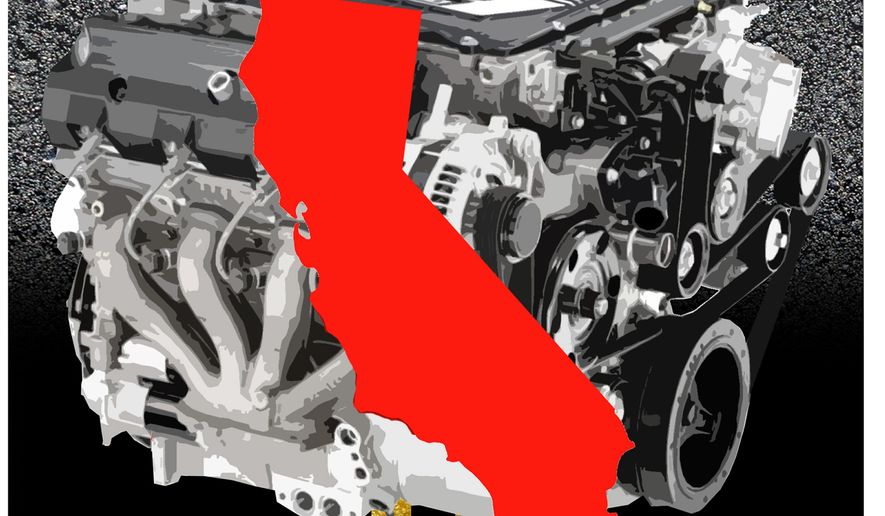OPINION:
During President Biden’s lame duck period, his Environmental Protection Agency granted California a surprise waiver allowing the state to expand its radical electric vehicle mandate.
The Advanced Clean Cars II rule, which forces automakers to phase out gas-powered cars entirely by 2035, isn’t just an attack on consumer freedom; it’s also a recipe for economic disaster. Bureaucrats may have hoped it would fall under the radar, but thankfully, Congress has taken notice and plans to take swift action to reverse course.
The automotive industry has changed dramatically over the past decade with the rise of EVs and their impact on our economy. EVs are a global phenomenon, but California’s mandate disregards consumer choice and businesses’ legitimate concerns about its proposed timeline.
The ACC II mandates that zero-emission vehicles account for 43% of an automaker’s sales by 2027. The forced increase in EV sales over the next 10 years, set to hit 94% by 2034, is unrealistic and unattainable for most manufacturers.
Rep. Kevin Kiley of California recently introduced a Congressional Review Act resolution to repeal this misguided policy before it wreaks havoc on American businesses and families. With limited legislative days left for Congress to act, there is no time to waste. We urge all members of Congress to support the resolution on the floor.
With the gas car ban not even in effect, consumer demand is failing to meet California’s mandate, even within the state. Only 25.3% of all new vehicles registered in California were zero-emission, missing the 35% benchmark that automakers must reach next year. Most states, including some that have adopted the mandate, have EV adoption rates in the single digits.
To meet mandates, automakers have few options, none of which respects free market principles.
They could decrease the quantity of internal combustion engine vehicles to ensure that EVs account for a larger percentage of sales. However, with any market, increasing the scarcity of a product will increase its cost, and cars are no exception.
Automakers are set to pay a $20,000 fine per noncompliant vehicle sold, a chilling prospect when consumers are making their choice for traditional vehicles loud and clear.
Consumers are also seeing delays in EV infrastructure construction. Rural communities are increasingly left behind when it comes to reliable charging infrastructure, which is one reason contributing to EVs’ slow adoption.
Setting aside charging accessibility, EVs cost more. Cash-strapped consumers are watching the prices of all vehicles rise. When making the right choices for their household, the price tag is one of the most important factors. Consumers lead our markets, and it’s time for policymakers to listen to them.
In states surrounded by markets that do not follow the mandate, potential customer loss is a concern for businesses. When consumers in EV mandate states are presented with limited choice, they will either concede and pay more or take their business to an out-of-state market that respects their freedom to choose.
At a time when costs are Americans’ main concern, artificially raising automobile costs is an affront to consumers. Congress can protect consumers’ access to affordable vehicles by repealing California’s mandate.
Considering California accounts for just over 30% of the nation’s entire EV market, automakers are being forced to apply a one-size-fits-all model in a way that restricts consumers.
Each state’s economy has a unique market. Some states have a stronger preference for EVs than others, but the ACC II mandate disregards this, potentially disrupting an already fragile automotive industry.
Congress must repeal California’s ACC II mandate to restore consumer choice, protect businesses and let the market, not bureaucrats, determine the future of transportation. The free market works best when politicians get out of the way. It’s time to put consumers back in the driver’s seat.
• Gerard Scimeca is chairman and general counsel for Consumer Action for a Strong Economy, a free-market-oriented consumer organization he co-founded.




Please read our comment policy before commenting.